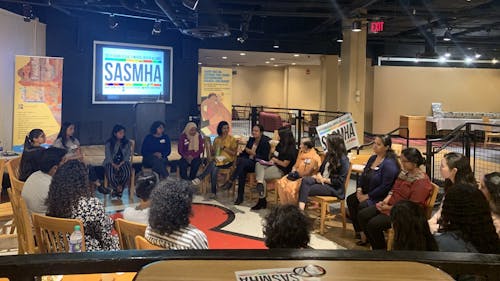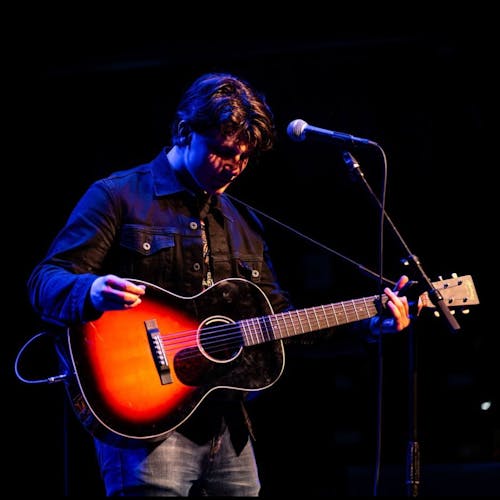Manavi, SAMSHA offers safe haven for South Asian students

Before I moved to make any decision in life, my brain was wired to first analyze what would people think if I did X, Y and Z. I’d let this concept of “what will people say” hold me hostage for most of my life and to this day, I work toward unlearning that.
And I’m not alone in this anxiety-ridden slippery slope of a thought process. As one of many Pakistani Americans across this country, I’ve been caught in the storm of two opposite worlds.
I have had my mother tongue shove me into a box of conformity, lock the door and melt the key. My migrant country, a nation of “opportunity,” attaches violence to my existence before I can even utter a word. Yet, I felt at peace when I could put words to my experience at Manavi’s Log Kya Kahen Gay Event.
Manavi is the first American domestic violence agency that specifically addresses the South Asian community and is based in New Brunswick, New Jersey. Its work is committed to ending gender-based violence. On Sept. 7, it hosted a workshop series titled “What Will People Say?” at the College Avenue Student Center.
The workshop series included a variety of topics facilitated by founders of the South Asian Sexual & Mental Health Alliance (SAMSHA) and Rutgers’ very own SCREAM Theater. The topics touched on taboo subjects in the South Asian community like colorism, sex and virginity and mental and sexual health issues. They created a space that many times doesn’t exist for South Asian people.
The stigma around talking about issues deemed too controversial force many South Asian people to suffer in silence. These can be any issues or personal problems that many people don’t want to share out of fear of being judged or looked down upon by other members of the community or sometimes even their own families.
This burden can be an even greater one to carry when your identity is weaponized or exoticized in a country that’s supposedly your safe haven.
Family and community conflicts like lack of extended family support or status anxiety lead to high levels of distress, anxiety and depression in young South Asian men and women across America, according to a 2009 study by the journal Cultural Diversity and Ethnic Minority Psychology.
The study also made it a point to highlight how little research is done on the psychological effects on the mental health of South Asian immigrant children who were brought to the United States and have to work to assimilate to a new culture.
Manavi’s event specifically touched on what it means being from two worlds and coming into your own existence as the creator of a third culture. I had never felt liberation like I did during the discussion where words were put to my experience of being forced to assimilate to a country where I knew nothing and no one.
Sarah Arshad, a School of Arts and Sciences senior, explained how important events like these are for her own experience.
“Events like these are important because it’s curated by and for South Asian women. Oftentimes events geared toward Black or indigenous women of color tend to homogenize our experiences when in reality there are different things we have to address. From the tensions within our own community to how we navigate society as a whole, we have to look through different racial, gender and class lenses in order to make sense of our individual experiences. In this space, they’ve helped us recognize that we are third-culture kids who need to pave our own paths and challenge cultural taboos, stigmas and expectations," she said.
I, for one, will tell you this isn’t an easy existence to occupy because the world hasn’t been ready for us third-culture kids.
Yet, here we are and we don’t care about what people will say.



